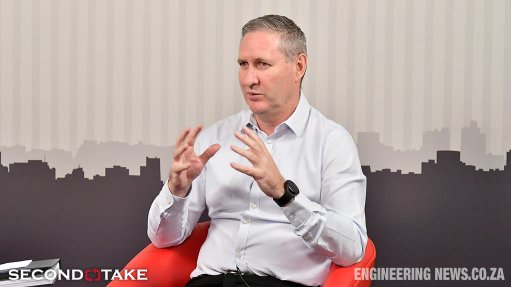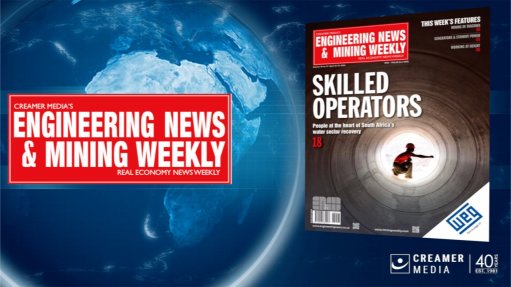Tender system’s unintended consequences
I have developed a number of relationships with professionals and semiprofessionals. There is my doctor, dentist and Dr Keith, my favourite plastic surgeon. I have a plumber, an electrician, a garden service provider and a rubbish removal service provider. And so on.
None of them was chosen by me on the basis of the lowest price. If I were to quibble with them about prices, what would happen? The doctor would cut his examination time. The plumber would do a call-out only when better-paying work was complete. The electrician would send the appy to do the wiring. The garden service provider would dump the rubbish by the side of the road around the corner. The dentist would look to extract as many teeth as possible, since ‘fewer teeth, fewer problems’.
And Dr Keith? Nope. I do not even want to think what the reduced service from a plastic surgeon looks like.
You get the idea, I am sure. Let us turn to sword makers. Right? Sword makers. Sword maker Masamune is credited with creating the Japanese Soshu tradition of sword making, which involved creating a unique hamon (temper line) of martensitic crystals embedded in pearlite matrix thought to resemble nightime. Samurai sword history regards Masamune’s swords as some of the most beautiful ever made. Now I can bet that if you want to learn to make swords, you are going to have to be apprenticed to a sword maker like Masamune. And the learning process takes time. So the message is this: good work requires that you pay a fair price and it takes time to learn to be good.
Let us now turn to consulting engineers. I am a consulting engineer and have been in private practice for 20 years and in consulting engineering for 26 years. For many years, consulting engineers were members of a panel of consultants registered with the Department of Public Works (DPW). On a rotation basis, the DPW would dish out work – some big projects, some small. One year, the public ablution block lighting at the beach, the next the electrification of a township.
Then came the new government. It wanted the consulting engineering world transformed to black ownership – and snappy fast. Since there were not very many black engineers with experience, this could not happen very quickly. The new government thus encouraged consulting engineers to be transformed by applying black economic empowerment (BEE) to them and at the same time required them to offer their fee proposals as tenders in competition.
Thus, if you were not BEE registered at all, then, against a 50% black-owned firm, your fee offer would have to be 25% less than the BEE firm’s to get the work. Clearly your business would not work under these conditions, so you would have to sell it or become more BEE registered. Naturally, since you cannot change your race classification, there is a limit to what you get with the second option.
Government hoped that this would all transform the consult- ing engineering profession overnight, but it did not. All that happened was that all the smaller practices were bought by large, fully BEE-compliant firms, where the owners were, basically, accountants. The small practices were all white-owned and, once sheltered by the large firms, the white engineers had no interest in teaching black engineers. The blacks could see what they could pick up on the job but the essentials, the sword making skills, were not passed on.
Make no mistake, there are brilliant black engineers out there (we employ one but, actually, he is not black, since he comes from Zimbabwe). But there are not enough brilliant black engineers. People learn stuff in small practices. And there are very few of them around. But government still insists on the tender process for consulting engineers.
So, what happens? With falling profit margins, the bigger consulting practices that were becoming BEE-compliant (but too slowly) have now been bought by international consulting practices that can apply economies of scale to the work required and live on slim margins. Like a supermarket. No more sword makers, just tin smiths. Thus, even less chance of increasing the number of black consulting engineers – all of which is a shame.
Comments
Press Office
Announcements
What's On
Subscribe to improve your user experience...
Option 1 (equivalent of R125 a month):
Receive a weekly copy of Creamer Media's Engineering News & Mining Weekly magazine
(print copy for those in South Africa and e-magazine for those outside of South Africa)
Receive daily email newsletters
Access to full search results
Access archive of magazine back copies
Access to Projects in Progress
Access to ONE Research Report of your choice in PDF format
Option 2 (equivalent of R375 a month):
All benefits from Option 1
PLUS
Access to Creamer Media's Research Channel Africa for ALL Research Reports, in PDF format, on various industrial and mining sectors
including Electricity; Water; Energy Transition; Hydrogen; Roads, Rail and Ports; Coal; Gold; Platinum; Battery Metals; etc.
Already a subscriber?
Forgotten your password?
Receive weekly copy of Creamer Media's Engineering News & Mining Weekly magazine (print copy for those in South Africa and e-magazine for those outside of South Africa)
➕
Recieve daily email newsletters
➕
Access to full search results
➕
Access archive of magazine back copies
➕
Access to Projects in Progress
➕
Access to ONE Research Report of your choice in PDF format
RESEARCH CHANNEL AFRICA
R4500 (equivalent of R375 a month)
SUBSCRIBEAll benefits from Option 1
➕
Access to Creamer Media's Research Channel Africa for ALL Research Reports on various industrial and mining sectors, in PDF format, including on:
Electricity
➕
Water
➕
Energy Transition
➕
Hydrogen
➕
Roads, Rail and Ports
➕
Coal
➕
Gold
➕
Platinum
➕
Battery Metals
➕
etc.
Receive all benefits from Option 1 or Option 2 delivered to numerous people at your company
➕
Multiple User names and Passwords for simultaneous log-ins
➕
Intranet integration access to all in your organisation


















